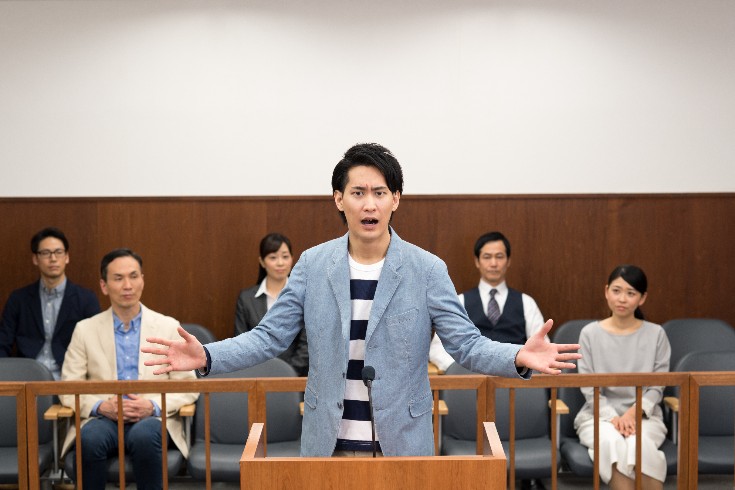Injunctions Against the Issuance of Shares and Actions for Nullity under Japanese Corporate Law: A Commentary Focused on Case Law

The share issuance system, introduced by the 2019 amendment to the Japanese Companies Act and enforced from March 1, 2021 (Reiwa 3), has been positioned as a significant option in modern M&A practices. This system allows a joint-stock company to acquire shares of another company with the aim of making it a subsidiary, by offering its own shares as consideration. While share exchanges, which use shares as consideration for M&A, have traditionally been limited to cases where the target company becomes a wholly-owned subsidiary, share issuance is revolutionary in that it does not require full subsidiary status and enables the construction of more flexible capital relationships, such as aiming for a majority of voting rights. This flexibility has opened the way for startups and venture companies to execute strategic M&As without the need for substantial cash reserves.
However, even with such a flexible system, its implementation does not always align with the interests of all shareholders. There is a possibility that the management of the share-issuing parent company may use this system for improper purposes, such as maintaining their control, rather than for the legitimate interests of the company. Furthermore, significant violations of laws or articles of incorporation may occur during the procedure. Shareholders facing such situations need to take legal action to protect their rights and the value of the company.
This article provides a detailed explanation of two main legal remedies under Japanese corporate law to prevent or correct illegal or improper share issuances: the “injunction request” to stop the implementation before the share issuance is executed, and the “action for nullity” to overturn the effects after execution. Although the share issuance system itself is new, the interpretation and application of these remedies are deeply rooted in the accumulation of judicial precedents related to other corporate actions, such as the issuance of new shares. Therefore, this article will clarify the requirements, scope, and practical implications of these legal measures, citing a wealth of judicial precedents that demonstrate how courts have balanced shareholder protection and transaction safety, all while grounded in the relevant provisions of Japanese corporate law.
Injunction Against Issuance of Shares Under Japanese Corporate Law
An injunction against the issuance of shares is a preemptive remedy designed to protect shareholders from suffering disadvantages due to illegal or improper issuance of shares. This mechanism aims to legally halt the execution of share issuance before its effects come into force.
Legal Basis and Requirements for Injunction Requests Under Japanese Corporate Law
The right to request an injunction against the issuance of shares is directly based on Article 816-5 of the Japanese Companies Act. According to this article, a shareholder of the parent company issuing shares can demand the company to stop the issuance if the following two requirements are met:
- The issuance of shares violates laws or the company’s articles of incorporation (in cases of violation of laws or the articles of incorporation).
- There is a possibility that the shareholder will suffer a disadvantage due to the issuance of shares (when there is a possibility that the shareholder will suffer a disadvantage).
To exercise this right, a shareholder must file a lawsuit against the company seeking an injunction to stop the issuance of shares. In practice, to ensure the effectiveness of this right to request an injunction, it is common to apply for a provisional disposition order from the court as a safeguarded right, especially when the effective date of the share issuance is imminent and a swift decision is necessary.
However, there are exceptions to this right to request an injunction. Under the “simplified procedure” stipulated in Article 816-4 of the Japanese Companies Act, injunctions cannot be requested in principle for share issuances that meet the requirements of this procedure. The simplified procedure applies when the value of the property provided as consideration for the issuance of shares is negligible compared to the net assets of the parent company issuing the shares, and it eliminates the need for approval by a resolution of the shareholders’ meeting. This is based on the principle that more expedited procedures are permissible when the impact on the company is minor.
Specific Examples of “Violations of Laws or Articles of Incorporation” as Grounds for Injunction
One of the grounds for injunction stipulated in Article 816-5 of the Japanese Companies Act is “in the case of a violation of laws or articles of incorporation,” which includes various procedural defects. The issuance of shares, from the creation of a share issuance plan to disclosure to shareholders, approval at the shareholders’ meeting, and, in some cases, creditor protection procedures, is governed by strict procedures under Japanese corporate law. Any deficiencies in these procedures can constitute a violation of the law and serve as a basis for an injunction claim. Specific examples include the following:
- Deficiencies in the share issuance plan: Article 774-3 of the Japanese Companies Act specifies the matters that must be included in a share issuance plan. For instance, if essential items such as the terms of consideration or the effective date are missing, the plan itself becomes illegal.
- Violations of pre-disclosure procedures: Article 816-2 of the Japanese Companies Act obligates the share-issuing parent company to have documents detailing the contents of the share issuance plan, etc., available at its head office prior to the shareholders’ meeting. Failure to provide this pre-disclosure or the presence of falsehoods in the disclosed content infringes on the shareholders’ right to exercise their voting rights based on appropriate information, thus constituting a violation of the law.
- Flaws in shareholders’ meeting resolutions: Share issuance plans generally require approval by a special resolution at the shareholders’ meeting (Japanese Companies Act Article 816-3). If there are flaws in the resolution, such as violations of the convocation procedures under the law or violations of the resolution methods under the articles of incorporation, these affect the validity of the resolution and constitute a violation of the law for the entire share issuance.
- Failure to perform creditor protection procedures: When the consideration for share issuance involves property other than shares of the share-issuing parent company (such as money) and the amount exceeds a certain standard, procedures to protect the company’s creditors (such as announcements and calls for objections) are required under Article 816-8 of the Japanese Companies Act. Failure to perform these procedures is a serious violation of the law.
Comparing Grounds for Injunction Against New Share Issuance and the Scope of the “Primary Purpose Rule” Under Japanese Corporate Law
Understanding the grounds for injunction against share issuance is greatly enhanced by comparing them with the grounds for injunction against new share issuance. Article 210 of the Japanese Companies Act specifies that new share issuance can be enjoined if it is “in violation of laws or the articles of incorporation” or if it is conducted “by significantly unfair methods.” This phrase “by significantly unfair methods” is not present in Article 816, Paragraph 5 of the Japanese Companies Act, which governs the injunction against share issuance.
This difference may seem significant at first glance because the interpretation of “significantly unfair methods” has evolved through case law into what is known as the “Primary Purpose Rule.” This rule provides a judicial framework where, in situations involving disputes over control of a company, if management issues new shares with the “primary purpose” of diluting a specific shareholder’s stake to maintain their own control, such issuance is considered “significantly unfair” and an injunction can be granted.
So, does the absence of the phrase “significantly unfair methods” in the share issuance injunction provision mean that shareholders cannot enjoin share issuance even if management unjustly forces it through with the improper purpose of maintaining control, as long as the procedure is without flaws? The answer is no. Directors owe a duty of loyalty (Article 355 of the Japanese Companies Act) and a duty of due care of a prudent manager (Article 644 of the Japanese Civil Code) to the company. Carrying out a significant corporate act such as share issuance for the improper purpose of preserving the personal status of the management, rather than for the company’s legitimate business purposes, constitutes a breach of these duties. Furthermore, a breach of a director’s duties is interpreted as a “violation of laws.” Therefore, shareholders can enjoin share issuance conducted for an improper purpose based on the “violation of laws” as stipulated in Article 816, Paragraph 5 of the Japanese Companies Act. As a result, regardless of the presence or absence of the phrase “significantly unfair methods,” courts will substantively review the “primary purpose” of the transaction in claims for injunction against share issuance, just as they do in claims for injunction against new share issuance.
Challenging the Validity of Share Issuance Under Japanese Corporate Law
A challenge to the validity of share issuance is a legal remedy designed to retroactively negate the legal effects of shares that have already been issued. Unlike injunction requests, which aim to prevent actions before they occur, a challenge to the validity of share issuance seeks to overturn established facts and, therefore, its requirements are interpreted more strictly.
Legal Basis and Procedures for Claims of Invalidity
The lawsuit to assert the invalidity of share issuance is based on Article 828, Paragraph 1, Item 13 of the Japanese Companies Act. This claim is subject to strict procedural requirements to ensure early stabilization of legal relations.
- Eligible Plaintiffs: The law limits who can file a claim. Specifically, this includes shareholders, directors, and auditors of the parent company issuing shares on the effective date of the share issuance, those who transferred shares of the subsidiary company at the time of share issuance, and creditors who did not approve the share issuance.
- Filing Period: The claim of invalidity must be filed within six months from the effective date of the share issuance. This period is considered a non-extendable period (preclusive period), and once it has passed, no claim can be filed regardless of the circumstances.
- Defendant: The defendant in the claim is the parent company that carried out the share issuance.
The background for such strict procedural requirements lies in the important policy consideration under company law to protect “transaction safety.” Once a share issuance is believed to be validly established, new shareholders of the parent company issuing shares emerge, and these shares begin to circulate in the market, involving many third parties with vested interests. If anyone could claim invalidity at any time, such legal relations would become extremely unstable, leading to serious confusion in economic activities. Therefore, the law ensures legal stability by strictly limiting the eligible plaintiffs and the filing period, confining the scenarios in which invalidity can be claimed to exceptional cases.
Interpreting Grounds for Invalidity: The Principle of ‘Significant Defects’
To retroactively nullify the issuance of shares, it is insufficient to merely identify a violation of laws or regulations. The courts require the presence of a ‘significant defect’ in the procedure as a ground for invalidity. This standard of ‘significant defects’ is set considerably higher than that for injunctions. As previously mentioned, this is due to the legal mandate to protect the multitude of interests that have been formed and to prioritize the safety of transactions. Therefore, a judgment of invalidity is rendered only in cases where there are extremely serious flaws that shake the foundation of the procedure.
Court Cases Involving Significant Defects That Could Invalidate Corporate Actions Under Japanese Law
In Japanese corporate law, there is no concrete definition of “significant defects,” so its content has been shaped by the accumulation of court cases. The following precedents are crucial when determining the invalidity of stock issuance due to significant defects.
- Violation of Injunction Order: If a company issues shares despite a court’s injunction order to halt the issuance, this act is seen as an outright defiance of judicial decisions and is highly evaluated as procedurally illegal.
- Lack of Notification to Shareholders: Failing to notify shareholders of legally required solicitation matters or to make the necessary public announcements can also be grounds for invalidity (Supreme Court decision, January 28, 1997 (1997)). This is because notifications and announcements provide critical information that shareholders need to decide whether to exercise their right to request an injunction, and omitting this step is tantamount to depriving shareholders of the opportunity to request an injunction itself.
- Absence of Shareholders’ Meeting Resolution in Private Companies: In private companies where there are restrictions on the transfer of shares, existing shareholders have significantly higher expectations regarding the maintenance of shareholder composition compared to public companies. The lack of a shareholders’ meeting resolution in private companies can be a cause for invalidity.
- Other Significant Defects: Besides the above, actions such as issuing shares beyond the total number of shares authorized in the articles of incorporation or issuing a class of shares not stipulated in the articles of incorporation are considered significant defects that can invalidate the issuance, as they violate the fundamental provisions of the company’s charter.
Flaws That Do Not Constitute Grounds for Invalidity Under Japanese Corporate Law
On the other hand, there are flaws that, while they may serve as grounds for injunction, are not considered grounds for invalidity.
- Significantly Unfair Methods: Even if the issuance of shares is aimed at maintaining management control and contravenes the aforementioned main purpose rule, once it takes effect, it cannot be invalidated on that basis alone. This stance, established by precedent, prioritizes formal stability and the safety of transactions over substantive judgments of the appropriateness of the purpose.
- Issuance at a Particularly Advantageous Price (Favorable Issuance): Even if shares are issued to specific individuals at significantly favorable prices without the special resolution of the shareholders’ meeting required, this does not constitute grounds for invalidity. In such cases, the company can recover financial damages by demanding payment of the difference from the recipient of the issuance or the directors who approved it (Japanese Companies Act, Articles 212 and 213), and it is considered unnecessary to invalidate the transaction itself.
- Lack of Board of Directors’ Resolution: Even if a new share issuance in a public company is carried out without the legally required board of directors’ resolution, this is deemed merely a flaw in the company’s internal decision-making process and is generally not considered grounds for invalidity.
The Effects of a Judgment of Nullity Under Japanese Corporate Law
When a judgment declaring the issuance of shares as null and void becomes final, its effects are as follows:
- Prospective Effect: A judgment of nullity does not have retroactive effect. It only causes the issuance of shares to lose its effect from the point the judgment becomes final, moving forward (Article 839 of the Japanese Companies Act). Therefore, legal acts performed between the effective date of the share issuance and the finalization of the judgment generally remain valid.
- Effect Against Third Parties: The effect of a judgment of nullity extends not only to the parties involved in the lawsuit but also to all third parties (Article 838 of the Japanese Companies Act). This ensures that legal relationships are uniformly processed, preventing the emergence of new confusion.
- Restitution: When the issuance of shares is declared null and void, the parties must revert to the state as if the share issuance had not occurred. That is, the parent company that issued the shares must return the shares of the subsidiary company to the original shareholders, and the shareholders who had received shares of the parent company as consideration must return those shares to the parent company. It is considered that the provisions of Article 844 of the Japanese Companies Act, which governs the procedures after a judgment of nullity of a share exchange, are applied by analogy in this respect.
Comparing Injunctions and Actions for Nullity in Share Issuance Under Japanese Corporate Law
As we have seen, the two legal remedies for share issuance in Japan, injunctions and actions for nullity, differ significantly in their objectives, requirements, and underlying value judgments. Understanding these differences is essential for shareholders to choose the most appropriate legal action according to their situation.
An injunction is a proactive and preventive remedy aimed at averting the occurrence of damage due to illegal actions. In contrast, an action for nullity is a retrospective and fundamental remedy intended to overturn legal effects that have already occurred. This temporal difference defines the nature of both systems. Since an injunction is sought before the legal effect takes place, third-party interests have not yet become intricately involved, allowing courts to make relatively flexible decisions from the perspective of “protecting shareholder interests.” Therefore, not only procedural defects but also substantive reasons such as the impropriety of the purpose in light of the main purpose rule can serve as grounds for an injunction.
On the other hand, an action for nullity is brought after the legal effect has occurred, compelling the court to be acutely aware of the need to “protect the safety of transactions.” Many stakeholders may have already acted on the assumption of the validity of the share issuance, and overturning this could lead to socio-economic turmoil. Consequently, nullity is recognized only in cases where the procedural defects are extremely serious, such as when the opportunity for an injunction has been taken away or when there is a violation of the articles of incorporation that affects the core organization of the company. Substantive reasons such as the impropriety of the purpose are generally not considered grounds for nullity. This difference illustrates how Japanese corporate law strives for a delicate balance between protecting the interests of individual shareholders and the legal stability of the society surrounding the company.
The following table summarizes the main differences between these two systems.
| Aspect | Injunction Against Share Issuance | Action for Nullity Against Share Issuance |
| Legal Basis | Article 816-5 of the Japanese Companies Act | Article 828, Paragraph 1, Item 13 of the Japanese Companies Act |
| Nature | Proactive Remedy | Retrospective Remedy |
| Timing of Claim/Lawsuit | Before Legal Effect Occurs | Within 6 Months After Legal Effect Occurs |
| Main Reasons/Causes | Violations of Laws/Articles of Incorporation, Inappropriate Purpose (Main Purpose Rule) | Significant Procedural Defects |
| Court’s Criteria for Judgment | Relatively Lenient | Extremely Strict |
| Underlying Values | Protection of Shareholder Interests | Protection of Transaction Safety |
Summary
In this article, we have explained the stock issuance system under Japanese Corporate Law, discussing two main legal remedies available to shareholders to contest its validity: the “injunction request” and the “nullity lawsuit,” incorporating a wealth of case law. An injunction request is a preventive measure to stop the execution of stock issuance before its effects come into force, where courts substantively review the purpose using the main purpose rule in addition to the legality of the procedure. In contrast, a nullity lawsuit is a retrospective measure to overturn the effects after they have occurred, and due to the emphasis on legal stability, the grounds for nullity are strictly limited to extremely serious procedural defects such as judicial non-compliance or deprivation of shareholders’ rights to exercise their options.
To properly exercise these legal remedies, it is essential to have not only knowledge of the Corporate Law provisions related to the new stock issuance system but also a deep understanding of the long-standing case law principles surrounding new share issuance, particularly the judicial frameworks in corporate control disputes and the balancing of the two values of shareholder protection and transaction safety. Accurately identifying whether stock issuance is being used for an improper purpose or if there are significant procedural flaws, and taking the optimal legal action at the right time, is crucial in protecting shareholder rights.
Monolith Law Office is a legal practice with extensive experience and expertise in the fields of Japanese Corporate Law, M&A, and corporate-related litigation. Our firm has a track record of handling complex corporate legal cases, including injunction requests and nullity lawsuits related to stock issuance as explained in this article. In addition to deep insights into Japanese law, our firm also boasts attorneys with foreign legal qualifications and proficiency in business-level English. This enables us to provide accurate and strategic legal support that deeply understands the linguistic and cultural backgrounds of our clients in the context of international business. If you are facing challenges related to M&A or corporate legal affairs in Japan, including stock issuance, please do not hesitate to consult with us at Monolith Law Office.
Category: General Corporate





















